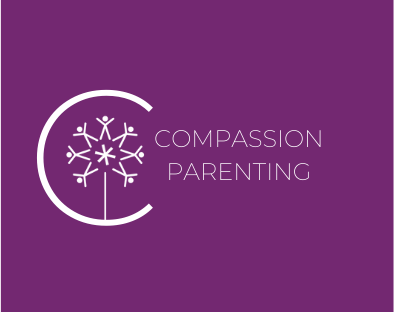Seasons: On Joy & Sorrow
“Speak to us of Joy and sorrow,” the poet and philosopher Kahlil Gibran writes.
“Your joy is your sorrow unmasked.
And the selfsame well from which your laughter rises was oftentimes filled with your tears. . . .
When you are joyous, look deep into your heart and you shall find it is only that which has given you sorrow that is giving you joy.
When you are sorrowful, look again in your heart, and you shall see that in truth you are weeping for that which has been your delight.”
Our kids bring us so much joy, but because we have fully opened our hearts to them, they can also bring us deep sadness and frustration. There’s so much emotion in family life and often as mothers we carry much of it.
According to a Native American legend, when Woman was created, she was called life-giver-- one who would carry the joys and sorrows of her family. The woman became burdened with this responsibility and cried out to nature. She was overheard by Raven, who carried her message to Grandmother Ocean and Grandmother Moon. The grandmothers worked together to offer a time of monthly cleansing. Thus originated menstruation, sometimes referred to as “moon time,” where all the built-up emotions and burdens could be released.
As parents we can cycle through joy & sorrow in a given day, but also, certain seasons of our parenthood may be weighted more heavily toward one than another. Joy and sorrow (and everything in between)--these are parts of life, but sometimes we receive less joy than is possible & carry more sorrow than necessary.
Why?
Let’s talk first about sorrow. There is true loss which must be processed and endured.
But today we’ll focus on those other sorrows that perhaps we could modify or down-size before trying to carry. I have sudden visions of myself at the grocery store refusing to get a cart and precariously balancing 18 items in my arms on the way to the checkout aisle, or me at the library with a stack of books and no bag. It doesn’t have to be this way.
Let me offer some new tools or “containers” to help us better shoulder the burdens life can bring: wise discernment, non-judgment, and release. They’re all slightly different and you can choose the right one for the job on any given day.
First, wise discernment. In my pediatric behavioral health and wellness clinic, I teach my clients thought catching based on cognitive behavioral therapy principles. Even kids as young as 8 or 9 can learn it, and so can you. Often the thoughts driving our emotions and actions simply aren’t true. When we can be more discerning and accurate in our thinking, we can conserve our emotional energy. For example, one common thought distortion is “all or nothing” thinking. In parenting perhaps it comes out as defining ourselves either as a good mom or a bad mom depending on the circumstance. More accurately you are a dedicated mom who occasionally struggles or falls short. You are in good company.
A different tool is non-judgment, an important component of mindfulness. You may think it contradicts the idea of analysis and discernment, but actually there’s a time and a place for both. Think of it this way. When you’re struggling, sometimes you need a friend who’ll give you advice, sometimes you need a friend who’ll just sit with you. Discernment is like the wise, inspired advice you give yourself, non-judgment is sitting with yourself like a friend. There’s a time and a place for both. When you approach a scenario in a spirit of non-judgment, you shed a layer of suffering that comes from inwardly fighting against “what is.”
In the Buddhist tradition, there is the concept of the “second arrow.” When something difficult happens to us, that’s the first arrow. It may cause pain or injury but it has already struck. If our emotional response to the first injury adds to it (as when we judge ourselves for struggling or lash out at others) that’s the second arrow, which with time & skill we can learn to avoid. For example, maybe you’ve recently had a difficult interaction with one of your kids that involved conflict and escalation. That exchange could be considered the first arrow. If you then start telling yourself you’re not a good parent, that’s a second arrow that only wounds you further. Instead, you can acknowledge your sadness and sit with it, without judgment or blame, like a compassionate friend.
A third strategy to help us carry the sorrows of life more skillfully, is ironically, to release them (along with the unmet expectations that brought them about). We can hold onto expectations, but lightly, and perhaps let them go. As a young teenager, I babysat for a large family. I remember asking the mother, “How do you keep everyone happy?” She laughed and said, “I can’t! At any given time someone is upset about something.” Now as a mom to 8 kids, I know what she means. If I cling to the expectation of continual peace and pleasantness for all, I’m headed rapidly for disappointment. If instead, I hold the hope gently, without force or angst, I’m less likely to face that sorrowing disillusionment. When sorrow comes, I can hold that lightly too, instead of with a wrenching grip. I can decide how long to hold it and when to let it go.
Now we’ll shift somewhat and talk about joy, but really it’s not an “either-or” thing. A duality always exists. Any three dimensional existence has shadows, both dark and light which give each other definition. Accepting this ongoing paradox is one of the first steps to having greater joy, because then we can recognize it even when it doesn’t come as a solitary emotion.
In parenting and in life, the greatest joys become accessible only when we are present to receive them. When we’re paying attention. Much of the receiving comes through the five senses. I remember a particular joyful moment lying on the grass in the warm sunshine with my newborn resting on my chest. It was such a simple moment that happened over 10 years ago, but I can transport myself to the vividness of the experience because I was fully present for it. Even the most ordinary day holds so much richness when we are truly awake.
In addition to simple joys are the moments of arrival. I had one of these moments of bliss recently as I watched my oldest son’s senior voice recital. Because of the pandemic, no in-person audience was allowed, but I got to watch the livestream. Every music lesson I’d ever driven him to, every time I’d shared my own love of music with him, every ounce of his own effort distilled into that beautiful, meaningful hour. In the Jewish tradition, there’s a special Hebrew blessing used to mark milestones while acknowledging God’s hand in them. It is “Shehecheyanu,” saying, “Blessed are you, Ruler of the Universe. You have kept us alive and sustained us, and enabled us to reach this moment.” Though parenting is a process and a journey, it’s important to mark and celebrate the arrival points.
One more way to invite joy into your parenting is orienting yourself towards gratitude and appreciation. This last Mother’s Day, I came into the kitchen and my 8-year-old son has set up a small plastic table with two stools. The table was set with our nicer china and vase with yellow flowers. He said, “Hello Madame. Here is your menu.” and he handed me a piece of paper on which he’d written in pencil, “Fried Egg.” I said, “I’ll have the fried egg.” So he cooked each of us one and we sat down for the feast. It was such a wonderful gift. Not everyday are people treating me to breakfast, or acknowledging me, or thanking me, but every day holds large and small joys to receive. What has today brought for you?
If your child has ever brought you a handful of dandelions or small picked flowers, remember that life is giving you these small bouquets throughout the day. Every single day. May you gratefully receive them.
© Mary Illions Wilde, MD
Let's connect!
IG @drmarywilde
Try out a free month of the Compassion Parenting Membership HERE. Use the promo code CPFREEX1
If your kids could use some more resilience, check out the Resilience School Intensive (includes coaching and support) or Resilience CORE Strategies (the DIY version).
Original music composed for Compassion Parenting by Ben Rodriguez https://soundcloud.com/bennicurious
***
To subscribe on iTunes: go to iTunes store→ Music→ podcasts→ type in "Compassion Parenting" in search & click on icon→ click “subscribe” button
To Leave a Podcast Review
Leaving a podcast review at iTunes isn't intuitive. But positive ratings are hugely important: they help the podcast get discovered by new people. Please spend 5 minutes of your time to leave a review using one of the methods below.
How to leave a podcast review using Apple’s Podcast app
- Launch Apple’s Podcast App on your iPhone or iPad.
- Choose “Search” from the bottom row of icons and enter the name of the show (i.e., “Compassion Parenting Podcast”) into the search field
- Select the show under Shows (not under Episodes)
- Scroll down past the first few episodes until you see Ratings & Reviews
- Click “Write a Review” underneath the displayed reviews from other listeners. (Enter your iTunes password to login). You’ll then have the option to rate us on a 5-star scale, and write a review if you choose :)
How to leave a podcast review at iTunes
- Go to the iTunes page of the Compassion Parenting Podcast.
- Click the "View in iTunes" button.
- At iTunes, click the Ratings and Reviews tab.
- You’ll then have the option to rate us on a 5-star scale, and write a review if you choose :)
**When you’ve written a review, tag me or msg me on IG @drmarywilde & I’ll give you a shoutout on my story & a personal TY!
xo, Dr. Mary


